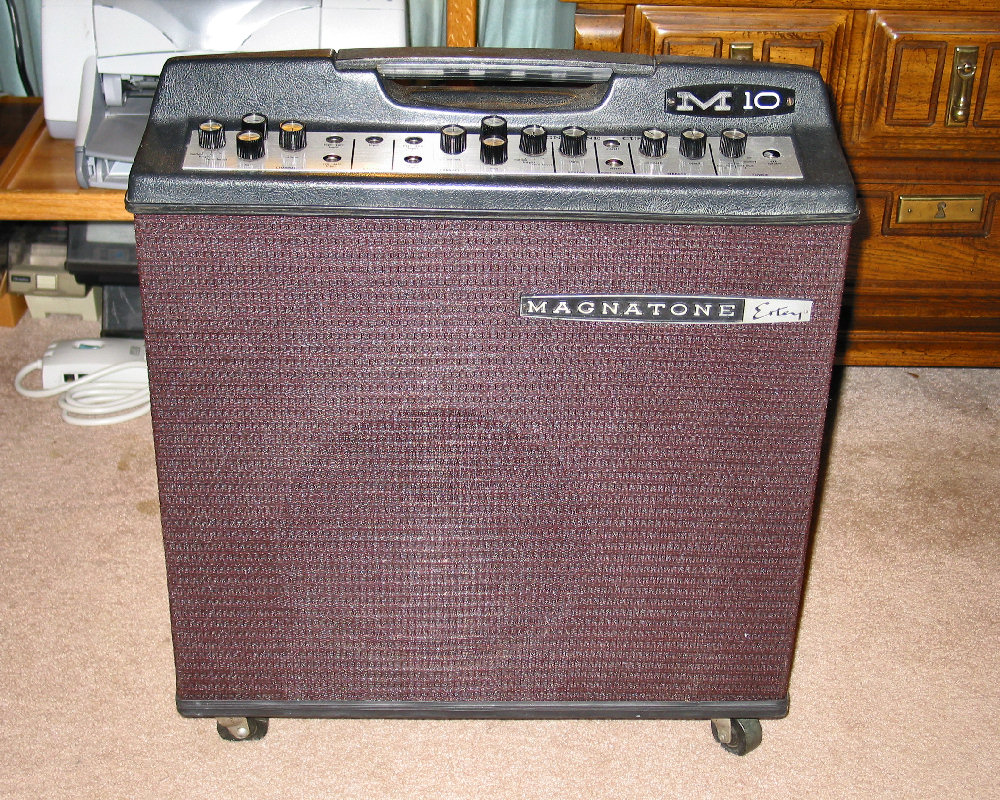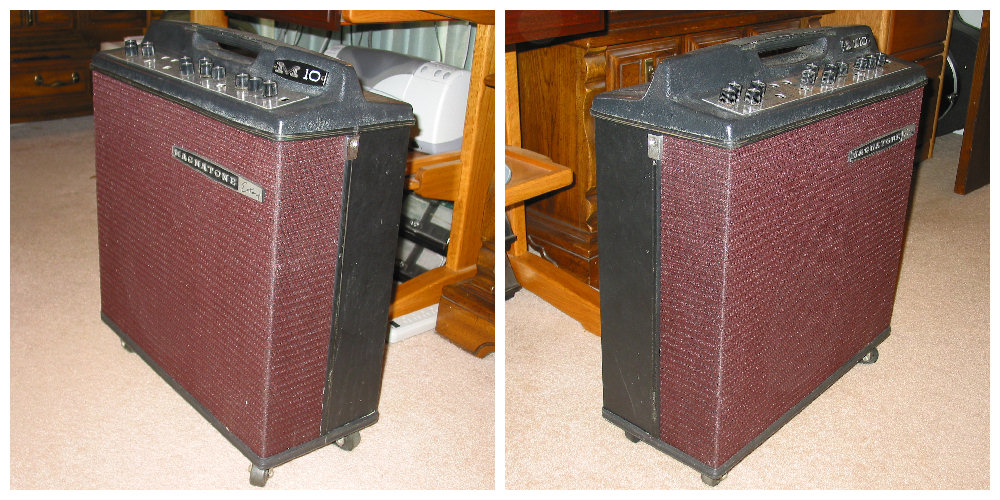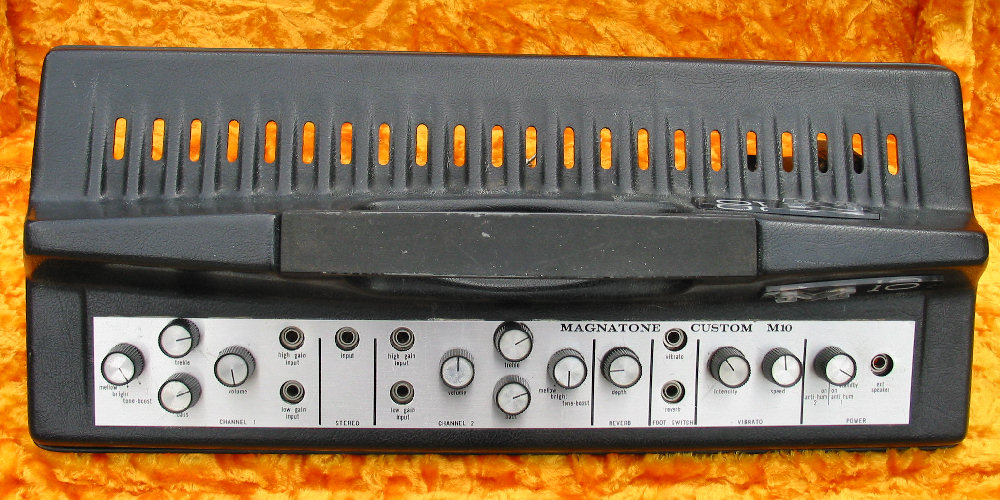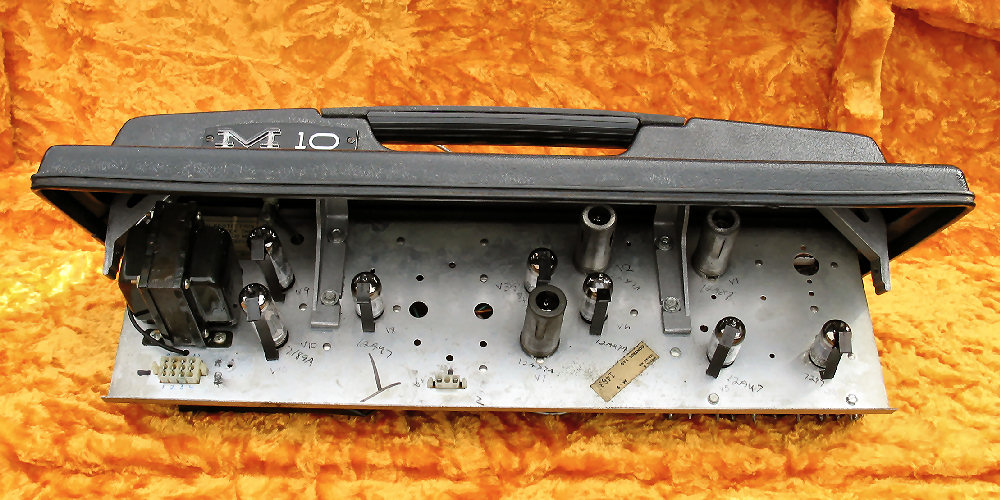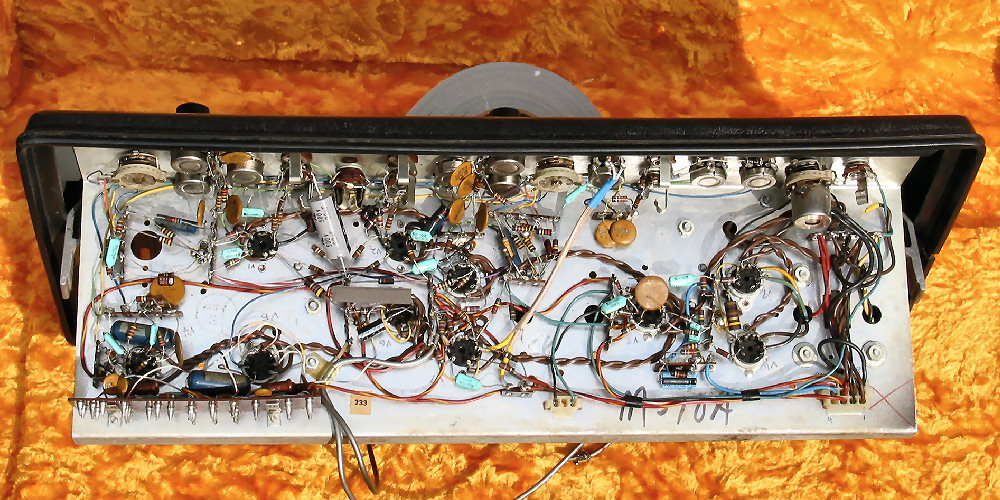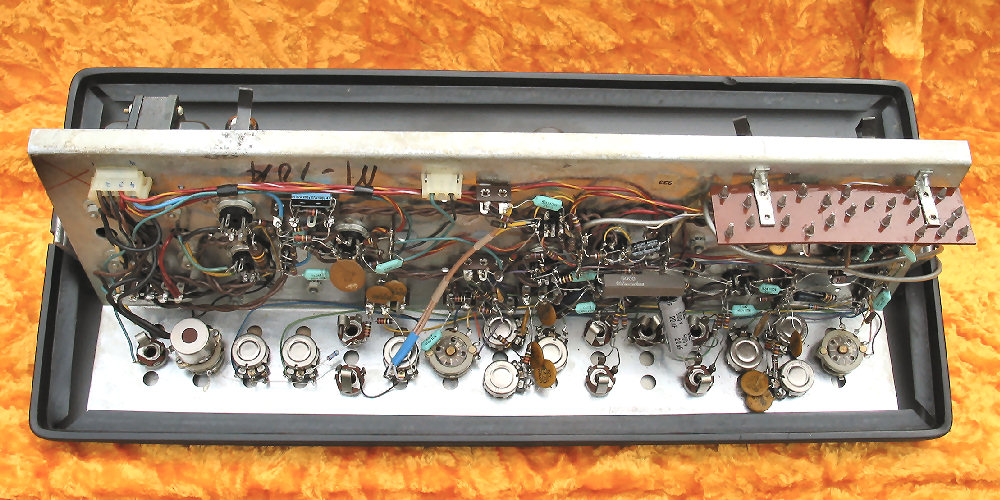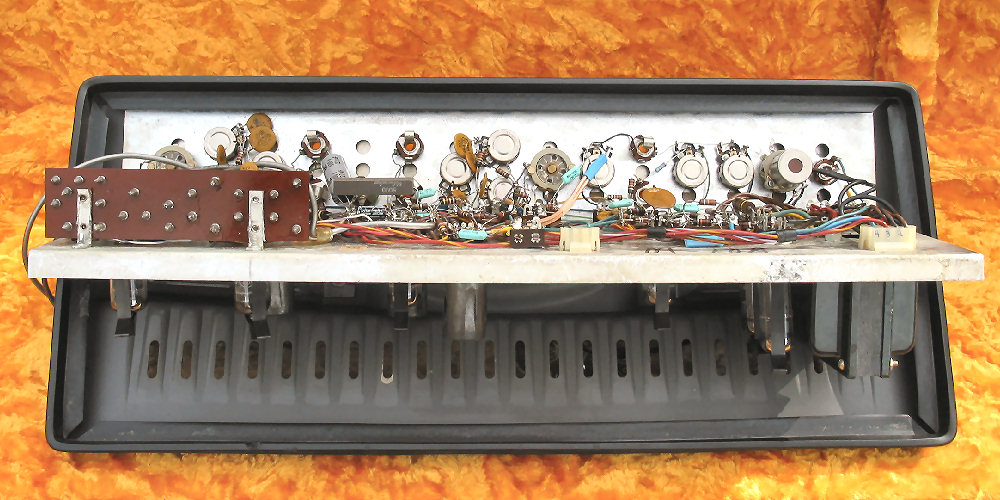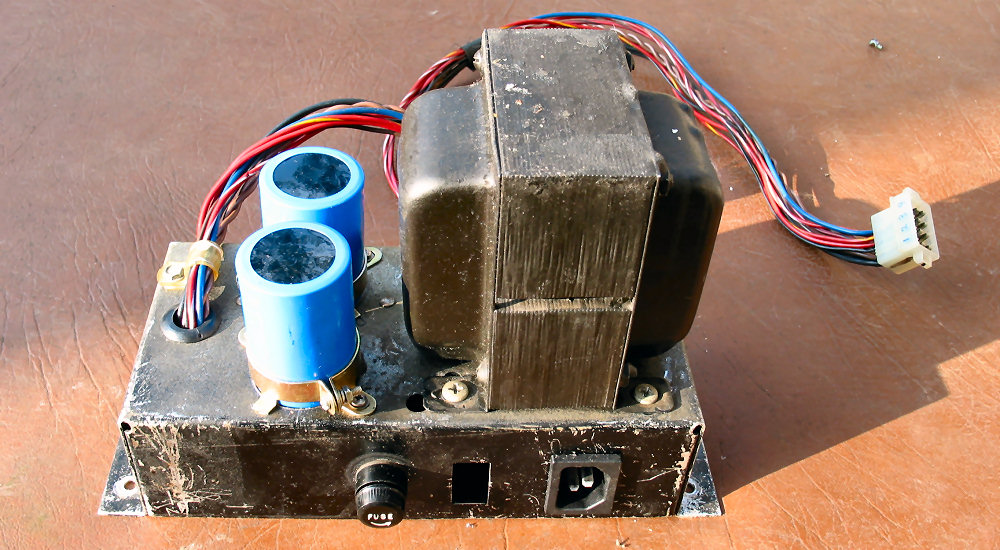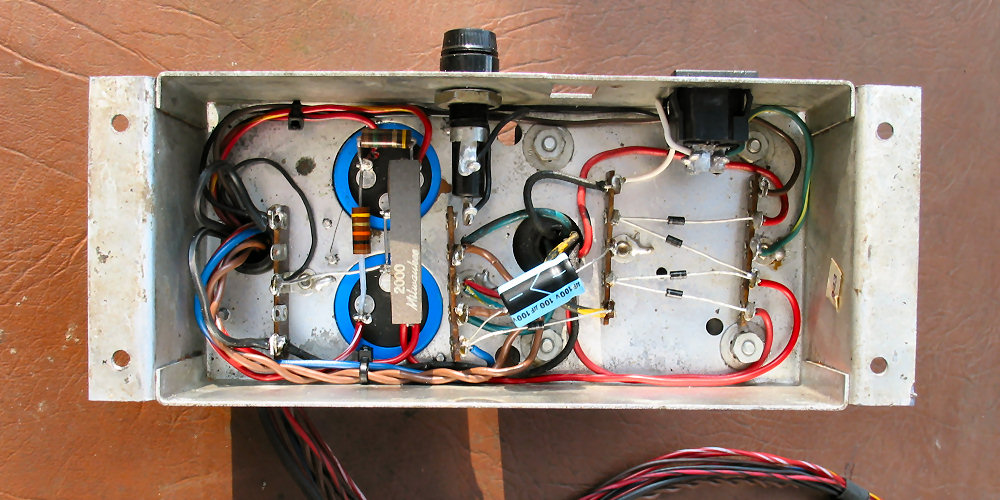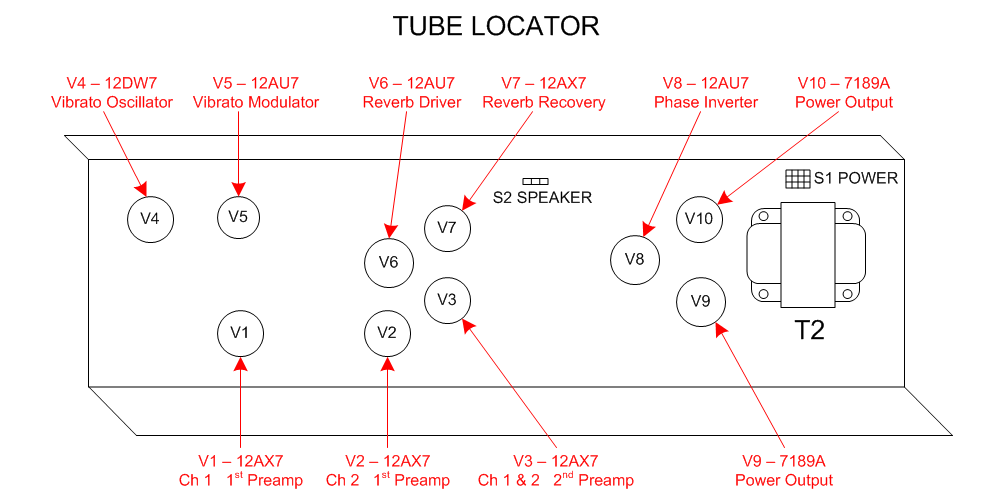For some time now I've heard talk about
the famous Vibrato sound of the Magnatone amps. So I started watching eBay and
spotted this one. It was advertised as "recently had been playing through the
amp and slowly the sound went out and the light under the logo went dim. From
then on the amp will not turn on and is being sold as is." I decided to
gamble on it and won the auction for $204.49. I finally received the amp about 3
weeks later. I was fortunate that the amp was not completely destroyed during
shipping. The guy that boxed it up didn't bolt down either of the chassis! And
he left a lot of empty space inside the shipping box. The power supply banged
around inside the speaker compartment and broke the cap can and fuse holder. The
main chassis broke a cast aluminum mounting bracket, cracked the plastic case,
and smashed a couple tubes. The main cabinet survived and luckily there was no
major damage to the circuitry.
So, I ordered some cap cans from Doug and
began using J.B. Weld to repair the broken parts. I got the caps before the J.B.
Weld cured! The power supply chassis originally had a 4 section can with 4 x
40uF caps. I couldn't find a replacement, so I opted for two cans with 2 x 50uF
caps. With a little planning I was able to squeeze both cans into the
little chassis. I had to punch new holes to mount the cans. It really turned out
looking neater than the original.
Next I reassembled the main chassis, top
case, and mounting brackets, and finally put everything back together.
Everything fit together and the amp is once again sound and sturdy. I was
skeptical initially, but the mechanical repairs turned out better than I had
hoped for. Finally, I could focus on the electronics!
I was lucky to find a schematic for this
amp. There were several component values on the original schematic that were
unreadable so I proceeded to redraw with Visio. It was quite a challenge to
redraw and verify that the new drawing was correct and component values matched
what was actually in the circuit. The process took a long time but the results
were worth it. And as a bonus, I became intimate with this circuit. The
circuitry is more complex than any other tube amp I've tackled and the actual
point to point construction would make troubleshooting this amp very hard
without a good schematic. You can download the original schematic and my
drawings in a single PDF at the bottom of this page.
During the visual inspection I found
a few shoddy repair attempts using totally incorrect components. Someone had
replaced a few 47Ks and 68Ks with 330Ks using snip and clip and bomb soldering
techniques. It took some patience to undo this shoddy workmanship and
make it right. Luckily the majority of the circuit was untouched. I was also
able to 'date' the amp using the pot codes. The Stackpole pots were all made
during the 32nd week of 1965. (Hey, that's the year I got involved with this
stuff!)
So finally, I replaced the broken tubes
and fired it up. Surprisingly, the amp sprung to life, although it wasn't a
totally joyful noise. One preamp was dead, reverb just made an awful
sound. But the vibrato was working fine! That was my biggest fear because the
varistors are rare. Next I loaded a fresh set of tubes and all the above
problems cleared up. I still had a couple dirty tube sockets and several
scratchy pots, but a good cleaning took care of those problems as well.
I spent several hours playing my Strat
through the amp and exploring the tone controls and vibrato. My first
impressions were WOW! This is a really clean, refined sounding amp. And the
phase shifting vibrato sound is excellent. The reverb is OK, definitely not
Fenderish. It's more along the sound of an old Sunn amp. After a week of playing
through this amp I found myself missing the growl of my Marshall inspired
November Project. I'm sure someone like Chet would have a better appreciation
for the clean sound of this amp. However, the vibrato sound makes this a keeper. And I really have
a huge appreciation for the circuit design of this amp. It's refreshing to get
away from the 100K/1.5K circuits for a while.
Here's the eye candy. The Oxblood grill
cloth is obviously not original, but it has a certain tasteful appeal. I'm also
considering a new faceplate. I really
had a good time with this project.
Update
November 16, 2008
Well, eBay is amazing. You really can find anything for sale if you're patient.
I just picked up a top case for my M10-A. This one is in better
condition than the original. Now I can actually read all the writing on the face
plate. I've updated the pictures to show the new top case.

